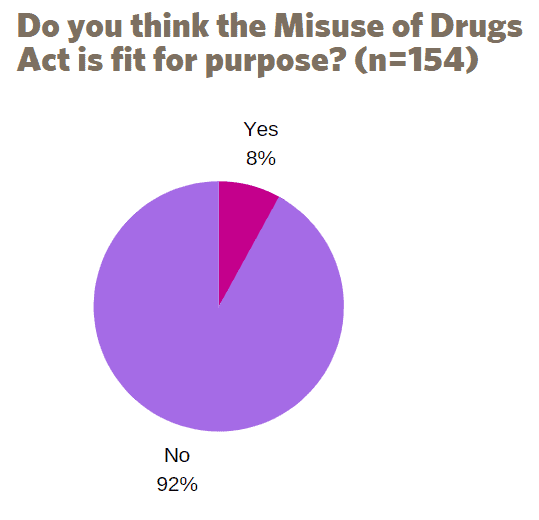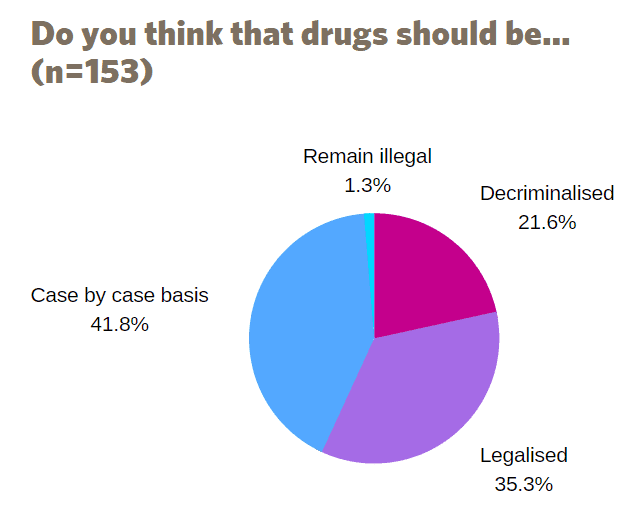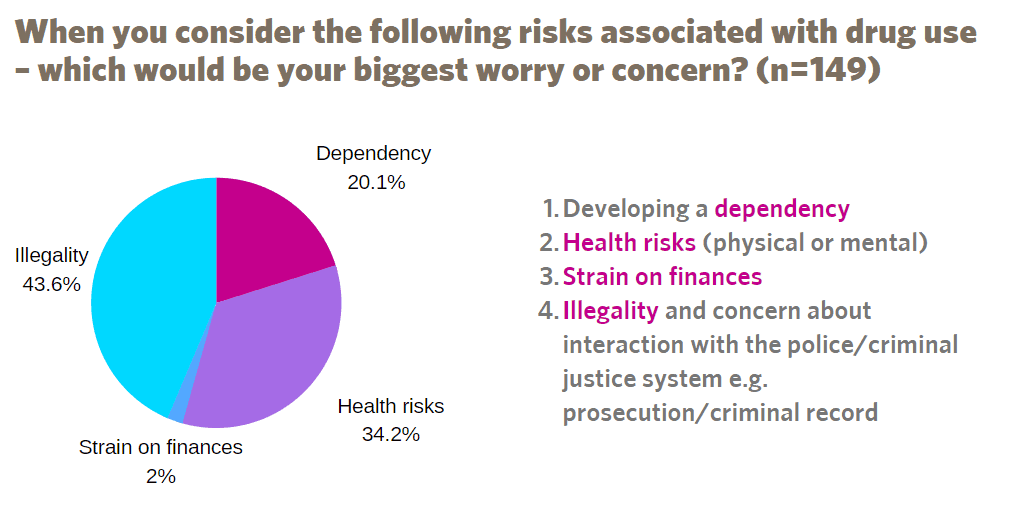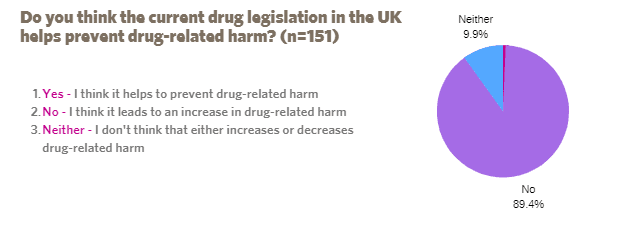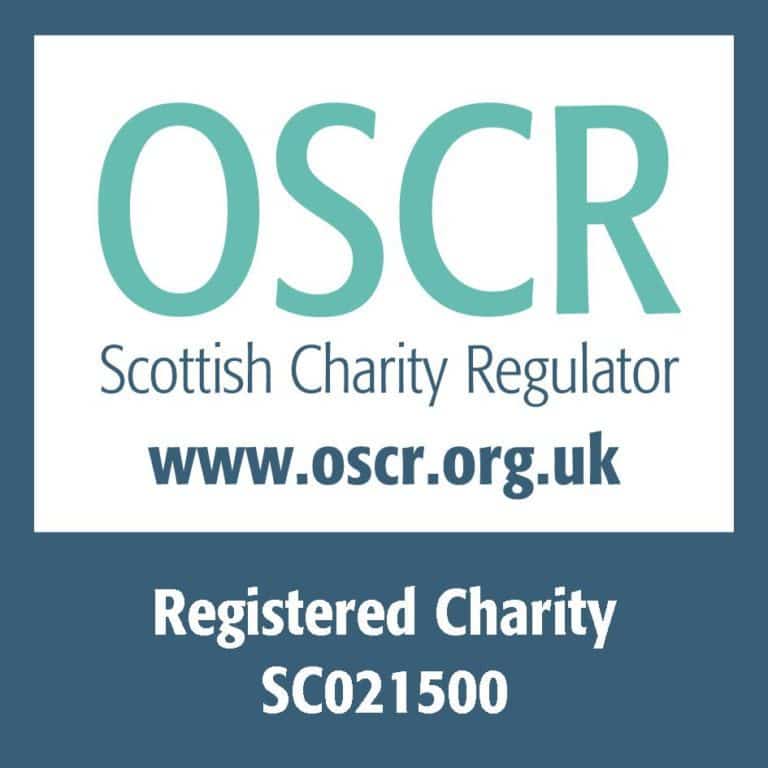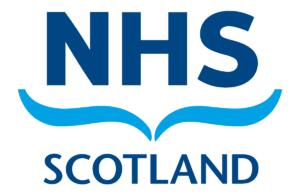Earlier this week we launched a short-term survey to hear your experience of the impact of UK drug legislation. It focused on the Misuse of Drugs Act (1971) and asked questions on health care, stigma and drug law reform. The results are available now.
We carried out this survey in order to include the voices of the public, including people who take drugs and their families, in our response to the current consultation being carried out by the Drug Deaths Task Force in Scotland on the topic of drug law reform. There were 18 questions in the survey with lots of room to leave comments to explain your views in more detail. A total of 154 people responded.
Please note that the comments included in the report are those of our survey respondents and do not necessarily reflect the views of Crew.
Thank you to everyone who took part in the survey – your insights are invaluable.
Click here to download the results
What did we learn?
More than 92% of the people who responded to the survey reported that the Misuse of Drugs Act (1971) was not fit for purpose. Having been in place for 50 years this piece of legislation was seen as ‘fit for purpose’ by just 8% of the respondents to our survey.
Focusing on potential drug law reform, we asked for thoughts on decriminalisation and legalisation. 22% thought that drugs should be decriminalised, 35% thought they should be legalised while a majority (42%) believed that drugs should be dealt with on a case by case basis where some drugs might be decriminalised, some completely legalised and others might remain illegal. Just 1% of people thought that drugs should remain illegal as per the status quo while 99% see the need for some kind of legal reform.
Decriminalised – meaning that possession of small amounts (considered a small amount for personal use) would not be a crime, but supply and import would be.
Legalised – meaning that there would be legal regulation of the sale of drugs, perhaps in a similar way to how alcohol and tobacco are legally sold.
In any engagement with the public there should be concerted effort to ensure there is a clear understanding of the different legalisation and decriminalisation models. For more information about drug law reform, please visit Transform or Anyone’s Child. This map from Talking Drugs shows models of decriminalisation across the world.
We asked about the risks associated with taking drugs – 44% noted that their top concern is the illegality of the drug and the potential for interaction with the police or possibility of prosecution and a criminal record, while 34% were most concerned about health concerns.
We also asked how concerned people were about the product they are buying not being the drug that they expected. The majority of people who responded were ‘concerned’ or ‘highly concerned’ about this risk. Observation of other countries and their drug policy and health initiatives, shows that we can minimise the risk of adulterants in the illicit drugs market by decriminalising or legally regulating the market, as well as providing strong public health surveillance, drug checking and safer consumption facilities.
Policing
The majority of people who responded to our survey (64%) had not had an interaction with the police related to drugs. People who had a previous interaction with the police were more concerned about the risk of police interaction (55%), than people who had not previously experienced an interaction with the police (37%).
67% of the people who responded to our survey were unaware of the discretionary powers that police in Scotland have when it comes to low level cannabis possession. Only 33% were aware that a Police Recorded Warning can be given instead of a caution. A Police Recorded Warning is recorded on the Police National Computer, but is not a ‘criminal record’.
“I don’t use them habitually anymore, but I know what it is like to be a user and to be more afraid of prosecution than of the drug itself.”
We asked if people would like to see this system expanded to include other drugs and opinion was mixed. 42% thought the recorded warning system should be expanded to include all drugs, 24% thought it should include some drugs while 20% weren’t sure and 14% thought that it should not be expanded with the comments accompanying this being “it is still on record” and “decriminalisation would be a better option”.
Under the Misuse of Drugs Act it is an offence to supply a controlled drug even if no money exchanged hands (e.g. if you gave a drug to your friend for free). 75% of the respondents to our survey were aware of this, while 25% were not.
When asked if current drug legislation in the UK worked to prevent drug-related harm, the majority of respondents (89%) thought that the current legislation led to an increase in harm. 10% thought that it neither increased nor decreased harm. Only one person thought that our current drug legislation prevented harm, which is of course what our drug laws are intended to do.
“Drugs are left completely in the hands of criminal organisations because the government refuses to decriminalised or legalise them. If legalised they could be regulated and the amount of drug deaths every year would drop.”
What barriers to good health might our current drug laws create?
At Crew we know that accessing a drug service for information, advice or support is a huge step for many people. Some of the main barriers that people highlight is their worry about judgement, stigma or legal repercussions. We asked people if their “concern over interaction with the police would prevent you from accessing support, information or advice about drug use?” 56% of respondents said that they would be worried, while 32% were not concerned. It is important that more people feel safe and comfortable accessing the support they need when they need it.
We also asked for people to explain why they might not be honest with a health professional about their drug use when visiting them about another issue (e.g. going to the dentist or accessing mental health support). 18% told us that they were worried about the potential legal consequences, 8% indicated they were worried about judgement and 3% indicated they were worried about being treated differently if the health professional knew that they took drugs. 41% were put off being honest about their drug use for a combination of those factors. That means that overall 70% would avoid being honest, and just 30% would be honest.
We also asked if people were concerned that being honest about their drug use would mean that they were not able to access treatment (e.g. accessing mental health treatment or access to medication). 59% said that this was a concern for them with one respondent commenting that:
“I would never tell my GP. When I confirmed I smoked cannabis, I was refused further support until I quit. When the ailment had nothing to do with my drug use.”
We often hear that people who take drugs are worried about the possibility of prosecution if they have to call for medical help due to a drug-related emergency. 65% of people said that they would not be worried about the legal consequences and would call for help, but 35% said that the legal consequences would be a concern for them. We believe that a ‘Good Samaritans’ law protecting people from prosecution in these circumstances would help people who take drugs, especially teenagers, feel more confident in calling for immediate emergency help.
We then asked about the impact of stigma – “how did current drug legislation impact on the stigma people who take drugs experience?” 77% of people who responded thought that there was a significant negative impact. 14% thought that there was some negative impact, 8% saw neither a negative nor positive impact. Just 2% thought that there was some positive impact, and no respondents thought there was a significant positive impact.
We also asked people their thoughts on the experience of families, and in the majority of comments people reported a negative impact for families linked to the stigma created by the criminalisation of people who take drugs. Respondents observed that criminalising people who take drugs made it more difficult for families to reach out for support. Some comments also suggested that legislation posits people who take drugs as criminals, rather than people who are potentially experiencing trauma and living with the symptoms of mental health conditions. Stigma led families to hide their loved one’s drug use and the impact it had for them, with some people even people preferring to claim their loved one died by suicide, once a significant taboo in society, rather than a drug-related death.
“When you are a mother you are constantly paranoid not because of the drugs but because in the back of your head, you are always worrying [about the legal consequences].”
The final question in the survey asked for people’s comments on changes they would like to see being made to drug legislation. We received 135 responses. 54 people specifically commented that they would like to see the legalisation of some or all drugs, 41 people laid out their imagining of decriminalisation and eight people specifically mentioned the need for education.
“It’s time to wake up and become a society based on compassion, hard data evaluation and innovation.”
Download the full survey results here:
Drugs, the Law and You Survey Results 2021


